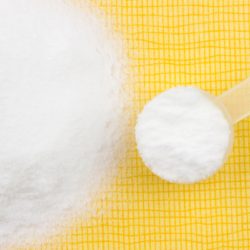Food response to stress varies from person to person. These responses are modulated according to the type of stress. Note that low stress leads to more overeating (excessive food intake) and more intense stress leads to more hypophagia (excessive restriction of food). These reactions, however, remain very dependent on the individual.
In stressful times, food choices with an emphasis on foods high in sugar and fat take precedence. These are comfort foods that are consumed regardless of hunger and calorie needs. Food triggers short-term pleasure relieving the negative effects of stress. The calming effect of food is more about the choice of comfort food than the number of calories. These effects on weight gain and the consumption of rich foods are more intense in people who are overweight and obese.
What is the link between obesity and oxidative stress state ?
Obesity is a worldwide public health disorder whose prevalence has doubled in the past 40 years.
Stress can be defined as a real threat and can be objectively measured by cortisol. This is an important characteristic of obesity. This is because cortisol as well as chronic stress predict long-term weight gain.
Additionally, abdominal obesity appears to be particularly associated with cortisol responsiveness, more so than peripheral obesity.
Stress – Sleep – Fatigue – Overweight :
When stress is chronic, insulin secretion is at its peak, which can lead to an increased risk of diabetes in the long term.
The circadian rhythm controls a set of parameters such as body temperature, cortisol secretion, eating behavior but especially melatonin secretion. Cortisol is high when melatonin is low and vice versa. If the level of cortisol does not manage to drop at night, melatonin does not manage to rise at night (which inevitably causes trouble sleeping). Cortisol is a daytime hormone and melatonin is a nighttime hormone. Cortisol needs carbohydrates (energy) and therefore insulin.
Some tips for lowering cortisol:
The breakdown of cortisol can cause a burnout.
Stress and food consumption :
In the general population, chronic stress is linked to unhealthy eating habits (reduced consumption of fruits and vegetables, increased consumption of high fat foods and unhealthy snacks). However, a low level of chronic stress is associated with healthy eating habits. With regard to acute stress, still in the general population, the literature describes on the one hand an increase in food consumption, and on the other hand a decrease in it or an absence of the effect of stress.
More intense stress is generally associated with an anorectic effect. Importantly, inter-individual differences in terms of BMI, distribution of body fat, eating habits, chronic stress, cortisol reactivity and cognitive restriction moderate the relationship between stress and consumption of food.
In addition, the tendency to eat one’s emotions has been associated with increased food consumption under stressful situations as well as increased consumption of fatty and sugary foods with high energy density, always in response to acute stress.
For example, chronic high stress is linked to increased food consumption following acute stress, while individuals with low chronic stress are not.
Towards an auto-addiction for food :
The impact of obesity on physical and psychological health is well established, especially with evidence of impaired cognition. Indeed, clinically obese people have weaker executive functions as well as a higher food addiction. On the other hand, consumption of unhealthy food is significantly predicted by food addiction while healthy food is not.
Addiction to an endogenous substance is a new concept called self-addiction. It would contribute to the development of certain behaviors, the pathological nature of which could precisely be established on the basis of this self-addictive dimension. In particular, pathological eating behavior could fit into this perspective.
Eating disorders are associated with abnormal levels of endorphins and show clinical similarities to the use of psychoactive substances. The key role of endorphins acts in certain aspects of normal, pathological and experimental eating behavior.
The neurobiological foundations for the onset of and perpetuation of an eating disorder emerge in light of the current implication of reward system abnormalities in the onset of addiction. The endorphins auto-addiction model helps to integrate the role of stress.







